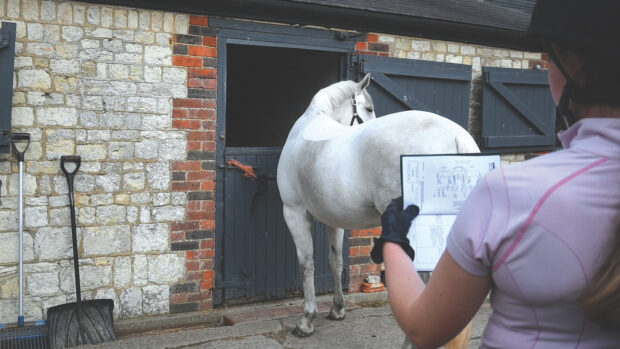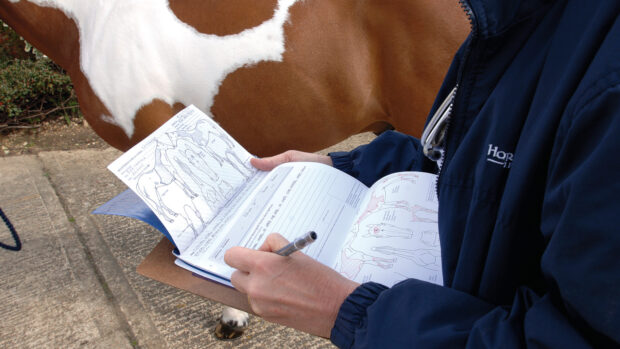Public horse and pony auctions are starting to recover after lot numbers plummeted when horse passport legislation first took effect in February.
The moment of sale is one of several points at which a passport must now accompany a horse in England and Wales. Auctions represent one of the few practical opportunities for local authorities to enforce the law through Trading Standards officers.
Tim Webster, auctioneer at Melton Mowbray horse sales, said: “We’ve been running at about 50% — across the range from £50 ponies to £2,000 horses. At first we had to turn animals away because they didn’t have the right papers. But it’s better at every sale. We think people have been waiting to get their passports back.”
Brightwells Auctioneers, better known for its top-end sales, reported a substantial drop in March in its lesser quality sales, but a steady recovery since.
The International League for the Protection of Horses (ILPH) has expressed fears that compulsory passports would result in more low-value animals being “dumped”. But the charity has not yet found evidence of an increase in the number of horses abandoned. Its local field officers report that sales of low-value horses are recovering.
Chief field officer Paul Teasdale said: “At my local market, dealers feel numbers will return to pre-passport levels as owners acclimatise and the backlog is overcome.”
Philip Jones, ILPH field officer for South Wales, said: “At Llanybydder horse sales I heard it was now picking up. As the auctioneer was offering ponies, he pointed out some were not for human consumption, so the meat men didn’t bid [in Wales, owners sign the declaration regarding human consumption on receipt of a passport].”
But Brightwells auctioneer Andrew Elliott warned that the new requirements did not present a foolproof system “by any stretch of the imagination”.
“We turn away horses that lack the correct papers, and Trading Standards looks at the passports we hold. But we can’t make ourselves responsible for checking whether passports match horses — that’s not our role.
“Passports are open to abuse: they’re meant to be about identification, but
they’re not a conclusive form of ID because markings are rarely wholly accurate, even when they’ve been done by a vet.”
The main difference between English and Scottish horse passports law lies in the timing of the declaration saying whether the horse can be used for human consumption. In Scotland, this must be signed when a horse moves from its birthplace, or from where it is when the system comes into force. This is less flexible than in England.
There are nine passport issuing bodies in Scotland, although owners can also apply to any of the 70-plus on the DEFRA list.
|
||
 |
||


 Get up to 19 issues FREE
Get up to 19 issues FREE TO SUBSCRIBE
TO SUBSCRIBE 


